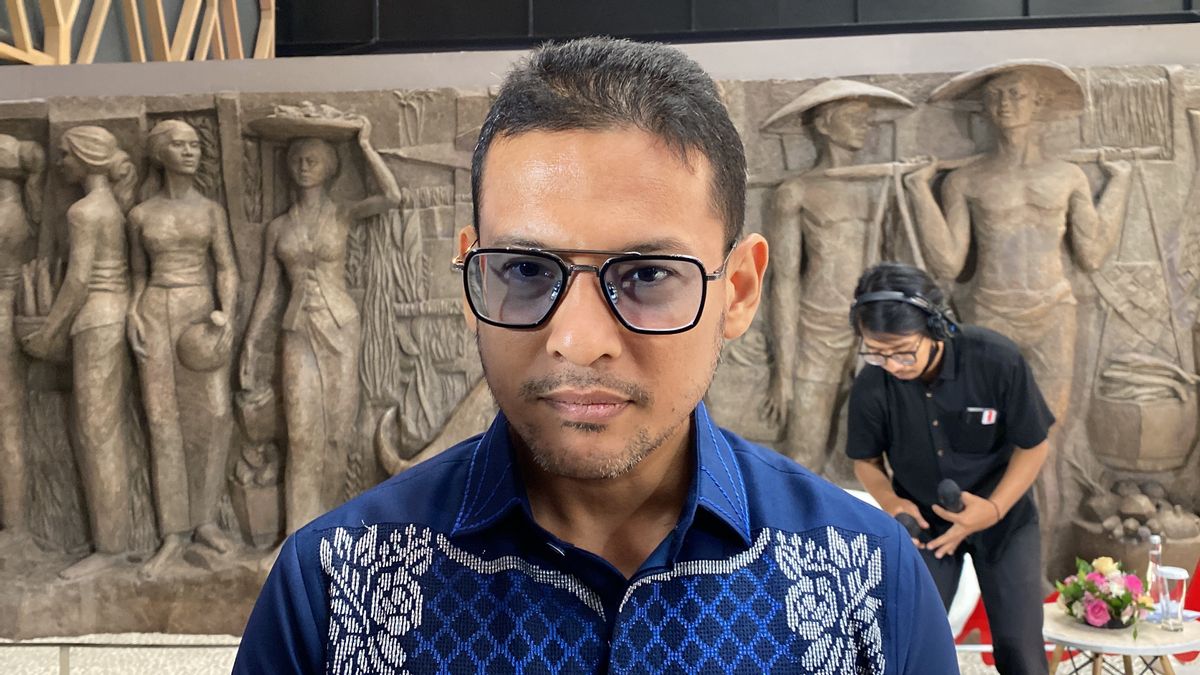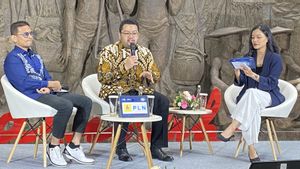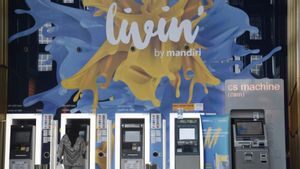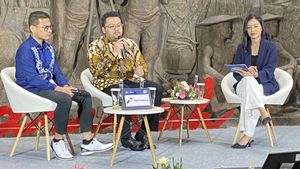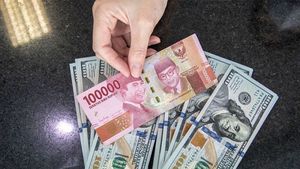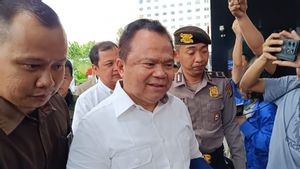JAKARTA - Senior Economist Samuel Sekuritas Indonesia Fithra Faisal Hastiadi said that the sea sand export policy was very wrong to implement.
Because, he said no one could confirm how to distinguish the sand and sediment that would be exported.
As is known, Indonesia reopened the tap for sea sand export after receiving the green light from President Joko Widodo (Jokowi). Sea sand exports itself have been stopped since 20 years ago. Even so, Jokowi emphasized that what is allowed is sediment, not sand.
"Wow, that's really wrong. This regulation has been frozen for a long time, we've seen the environmental impact is very high," he said when met in Sarinah, Jakarta, Thursday, September 19.
"Even though the cover is now, this is a sediment. When exported to Singapore, for example, who can distinguish this is sediment or sea sand? We don't know. Who can control it?," he continued.
According to Fithra, it is not appropriate for the government to pursue economic growth from sea sand exports but instead at the expense of environmental problems. He considered this an intertemporal consideration.
"We can catch up with economic growth, we can catch up with exports, without having to then sacrifice the environment. Because the most important thing we do is take intertemporal considerations. What does that mean? Now we can enjoy it, later our children and grandchildren can also enjoy it," he said.
Fithra is worried that if sea sand continues to be dredged in a long time for export needs, it could cause a decrease in the number of islands in Indonesia.
"Don't let it happen later, now it's okay to dredged up all kinds of things. But later the island won't exist. Maybe later Riau Island in 2045 will be gone. Because everything is dredged up," he said.
Even so, Fithra did not deny that sea sand exports could increase state revenue. However, he stressed that this would not take effect in the long term because the commodity did not have added value.
"We export it, we have changed the paradigm from raw products. So this is especially the sand period that we export. There is no added value, it has damaged the environment," he said.
In addition, Fithra said the policy of sea sand exports could also have a negative impact on Indonesia's image in the eyes of developed countries. This is because it is not in line with the concept of a green economy.
"It's not very in line. So if for example we want to talk to the European Union and all kinds of things, it will definitely be a concern," he explained.
For your information, the sea sand export policy took effect after the Minister of Trade Zulkifli Hasan received a proposal from the Minister of Marine Affairs and Fisheries (KKP) to revise the two Regulations of the Minister of Trade in the export sector.
The Ministry of Trade implements Government Regulation (PP) Number 26 of 2023 concerning Management of Sedimentation Results in the Sea as well as a follow-up to the proposal of the Ministry of Maritime Affairs and Fisheries (KKP) by revising two Regulations of the Minister of Trade in the export sector.
SEE ALSO:
The revision is contained in the Minister of Trade Regulation Number 20 of 2024 concerning the Second Amendment to the Regulation of the Minister of Trade Number 22 of 2023 concerning Goods Prohibited from Exporting and the Minister of Trade Number 21 of 2024 concerning the Second Amendment to Regulation of the Minister of Trade Number 23 of 2023 concerning Export Policy and Regulation.
"The revision of the two Permendag is a mandate of Government Regulation Number 26 of 2023 and is a proposal from the Ministry of Maritime Affairs and Fisheries (KKP) as a supervisory agency for the management of sedimentation results at sea," said the Director General of Foreign Trade at the Ministry of Trade, Isy Karim.
Even so, Isy emphasized, sea sand exports can only be done after meeting domestic needs.
"Exports from sedimentation in the sea in the form of sea sand can be determined as long as domestic needs are met and in accordance with the provisions of the legislation," he explained.
The English, Chinese, Japanese, Arabic, and French versions are automatically generated by the AI. So there may still be inaccuracies in translating, please always see Indonesian as our main language. (system supported by DigitalSiber.id)
